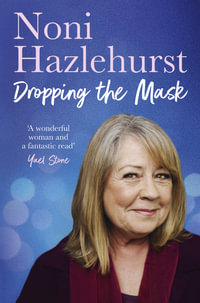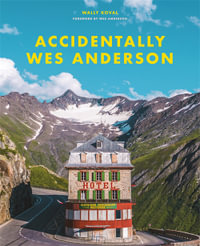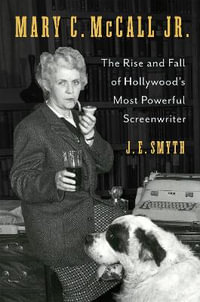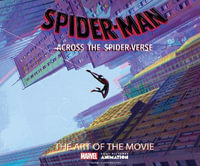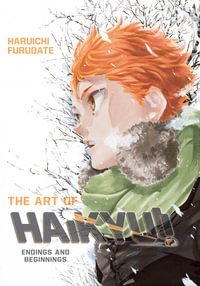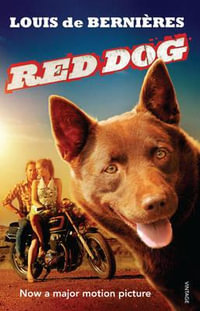"What gives all of these interviews their complexity and warmth is not only the different nationalities, but even more so the richly diverse and 'uncinematic' family backgrounds of the editors collected here. Had they followed in their parents' footsteps they would have instead become teachers, pilots, tailors, doctors, farmers, chemists, vegetable sellers, astronomers, bookkeepers, salesmen, road workers, dry cleaners, dentists or civil servants. Luckily for the readers of this marvelous book, and for world cinema, they took another route and - to use Godard's evocative description of film editing - transformed chance into destiny, making the varied circumstances of their lives a reflection of montage at its most sublime, when accidental moments are propelled by structure into inevitability."
-Walter Murch, Academy Award-winning Editor, Apocalypse Now (1979), The Godfather: Part III (1990), The English Patient (1996)
"The cutting room is where you learn how to make films, where you face up to your limitations and realise what you should have done. So, you'd better have a good relationship with your editor. The people talking here are amongst the best. Treat them well."
-Stephen Frears, BAFTA TV Award winner, Academy Award nominee; Director, Philomena (2013), The Queen (2006), Dirty Pretty Things (2002), Dangerous Liaisons (1988)
"The editors I know are full of insights and revealing stories about their work - this is a good read, full of great anecdotes."
-Ken Loach, BAFTA Film Award winner; Director, I, Daniel Blake (2016), The Wind That Shakes the Barley (2006), A Fond Kiss (2004), Land and Freedom (1995)
"Crittenden has juxtaposed individual interviews with essays and critical arguments by some of the directors who worked alongside these editors. For anyone who has enjoyed the French New Wave, Italian Neo-Realism, or the films of Andrei Tarkovsky or Ingmar Bergman, Crittenden's volume will be essential reading."
-Ray Zone, American Editors Guild Magazine
"An art that conceals as much as it enhances, editing is one of the most mysteriously alchemical of the practices fueling the seventh art, and its application can be radically different in, say, Soviet montage, commercial English-language cinema . . . or auteur-driven European films. The focus on the last, via interviews with more than two dozen practitioners, is what made Roger Crittenden's Fine Cuts stand out on first publication in 2006, and it still stands out today.
Technology is frequently discussed, notably the seismic shift from analogue to digital editing . . . the differences between cutting 35mm and much fiddlier 16mm, and how the film's final form can be dictated by specific shooting circumstances. An experienced editor himself, Crittenden is an alert and sensitive interviewer, happy to vary the form and content of each chapter in line with the interviewee's own personality and preoccupations, just as they constantly have to do with their own projects."
-Michael Brooke, Sight and Sound March 2019
"What gives all of these interviews their complexity and warmth is not only the different nationalities, but even more so the richly diverse and 'uncinematic' family backgrounds of the editors collected here. Had they followed in their parents' footsteps they would have instead become teachers, pilots, tailors, doctors, farmers, chemists, vegetable sellers, astronomers, bookkeepers, salesmen, road workers, dry cleaners, dentists or civil servants. Luckily for the readers of this marvelous book, and for world cinema, they took another route and - to use Godard's evocative description of film editing - transformed chance into destiny, making the varied circumstances of their lives a reflection of montage at its most sublime, when accidental moments are propelled by structure into inevitability."
-Walter Murch, Academy Award-winning Editor, Apocalypse Now (1979), The Godfather: Part III (1990), The English Patient (1996)
"The cutting room is where you learn how to make films, where you face up to your limitations and realise what you should have done. So, you'd better have a good relationship with your editor. The people talking here are amongst the best. Treat them well."
-Stephen Frears, BAFTA TV Award winner, Academy Award nominee; Director, Philomena (2013), The Queen (2006), Dirty Pretty Things (2002), Dangerous Liaisons (1988)
"The editors I know are full of insights and revealing stories about their work - this is a good read, full of great anecdotes."
-Ken Loach, BAFTA Film Award winner; Director, I, Daniel Blake (2016), The Wind That Shakes the Barley (2006), A Fond Kiss (2004), Land and Freedom (1995)
"Crittenden has juxtaposed individual interviews with essays and critical arguments by some of the directors who worked alongside these editors. For anyone who has enjoyed the French New Wave, Italian Neo-Realism, or the films of Andrei Tarkovsky or Ingmar Bergman, Crittenden's volume will be essential reading."
-Ray Zone, American Editors Guild Magazine
"An art that conceals as much as it enhances, editing is one of the most mysteriously alchemical of the practices fueling the seventh art, and its application can be radically different in, say, Soviet montage, commercial English-language cinema . . . or auteur-driven European films. The focus on the last, via interviews with more than two dozen practitioners, is what made Roger Crittenden's Fine Cuts stand out on first publication in 2006, and it still stands out today.
Technology is frequently discussed, notably the seismic shift from analogue to digital editing . . . the differences between cutting 35mm and much fiddlier 16mm, and how the film's final form can be dictated by specific shooting circumstances. An experienced editor himself, Crittenden is an alert and sensitive interviewer, happy to vary the form and content of each chapter in line with the interviewee's own personality and preoccupations, just as they constantly have to do with their own projects."
-Michael Brooke, Sight and Sound March 2019

